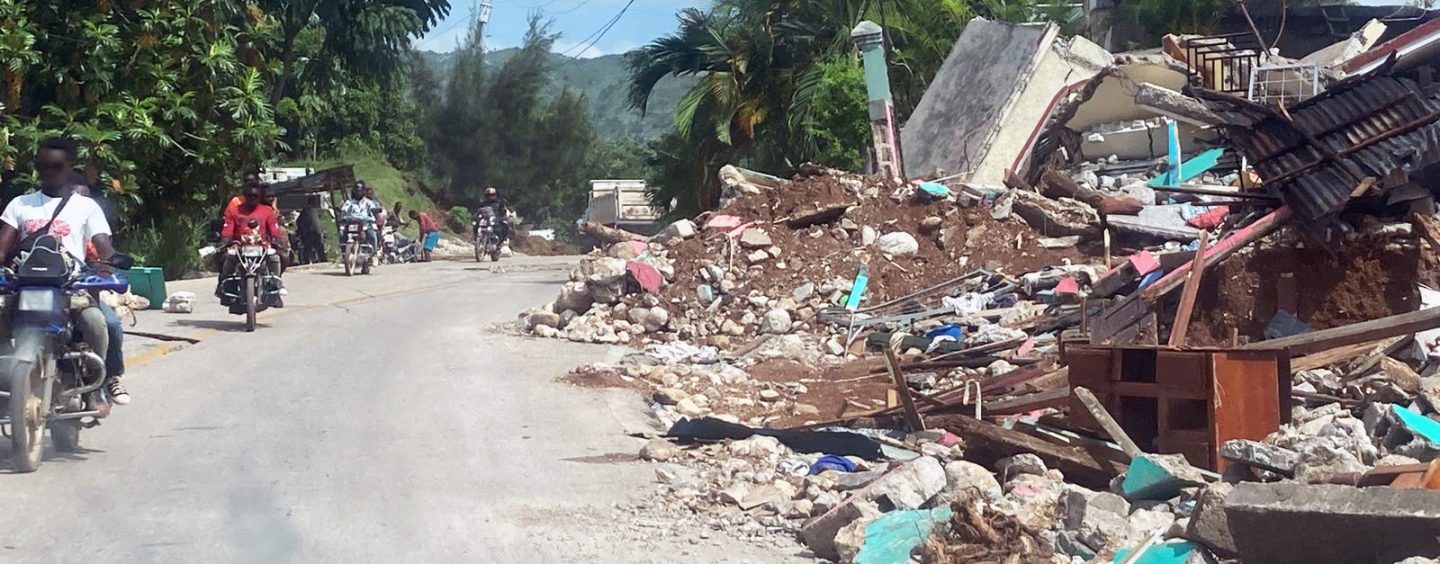
Haiti Residents Still Struggling in Aftermath of Deadly Earthquake
by Stacy M. Brown NNPA Newswire Senior National Correspondent @StacyBrownMedia 09/20/2021Some have called the situation in Haiti “a forgotten disaster.”
That’s because it appears that much of the western world hasn’t bothered to call to mind what residents in the Caribbean nation have experienced.
In August, the 7.2 magnitude earthquake that tore through the island nation left more than 2,200 people dead and at least 30,000 homeless.
Further exacerbating the country’s need, Haiti hadn’t fully recovered from the 2010 quake that officials there put death estimates at more than 300,000.
Today, over one month since the August 2021 quake, half of the Haitians affected still need humanitarian assistance – about 400,000 people, according to the District-based nonprofit Project Hope.
“To get medical care, some people are walking for hours. Some come on the back of motorcycles. One man with severe crush injuries to his limbs was carried down the mountainside by a family member and then brought in the back of a pickup truck,” said Project HOPE’s Director of Emergency Response & Preparedness Tom Cotter, who led our team in Haiti in the initial days after the quake.
“When people do get to a clinic, they hope that it is not one of the 32 health facilities that were completely damaged or destroyed,” Carter remarked in a news release.
“If the clinic is operational, they still may have to face shortages of medical supplies and personnel to treat them. If it isn’t, they are being tended to outside amidst challenging weather, heat, mosquitoes, and potential violence from crowds,” he stated.
Project HOPE has worked in Haiti since the 1980s and deployed an Emergency Response Team after the earthquake to conduct rapid assessments of the situation and most urgent needs on the ground.
The organization now helps the country’s health system recover for the long term.
“While the urgent medical needs from houses falling on people have passed, there are other more deadly medical needs that will continue to emerge in the next few months, due to the disruption to the healthcare system and supply chain for Haiti,” Cotter added.
“People are at risk of infectious diseases like cholera, acute respiratory infection, diarrhea, and malaria.”
Cotter continued:
“Over 119,000 people are in need of clean drinking water, while 130,000 are trying to figure out where they will sleep with their children since their homes were destroyed. With so many people gathering in temporary camps and shelters, concerns about the potential spread of coronavirus are yet another source of stress for these communities. On top of the physical trauma being attended to, only a few doctors in Haiti are trained to provide mental health support.”
“We must remain committed to supporting recovery and rebuilding the capacity of this country beyond when the cameras leave and the news coverage ends.”



No Comments so far
Jump into a conversationNo Comments Yet!
You can be the one to start a conversation.Only registered users can comment.